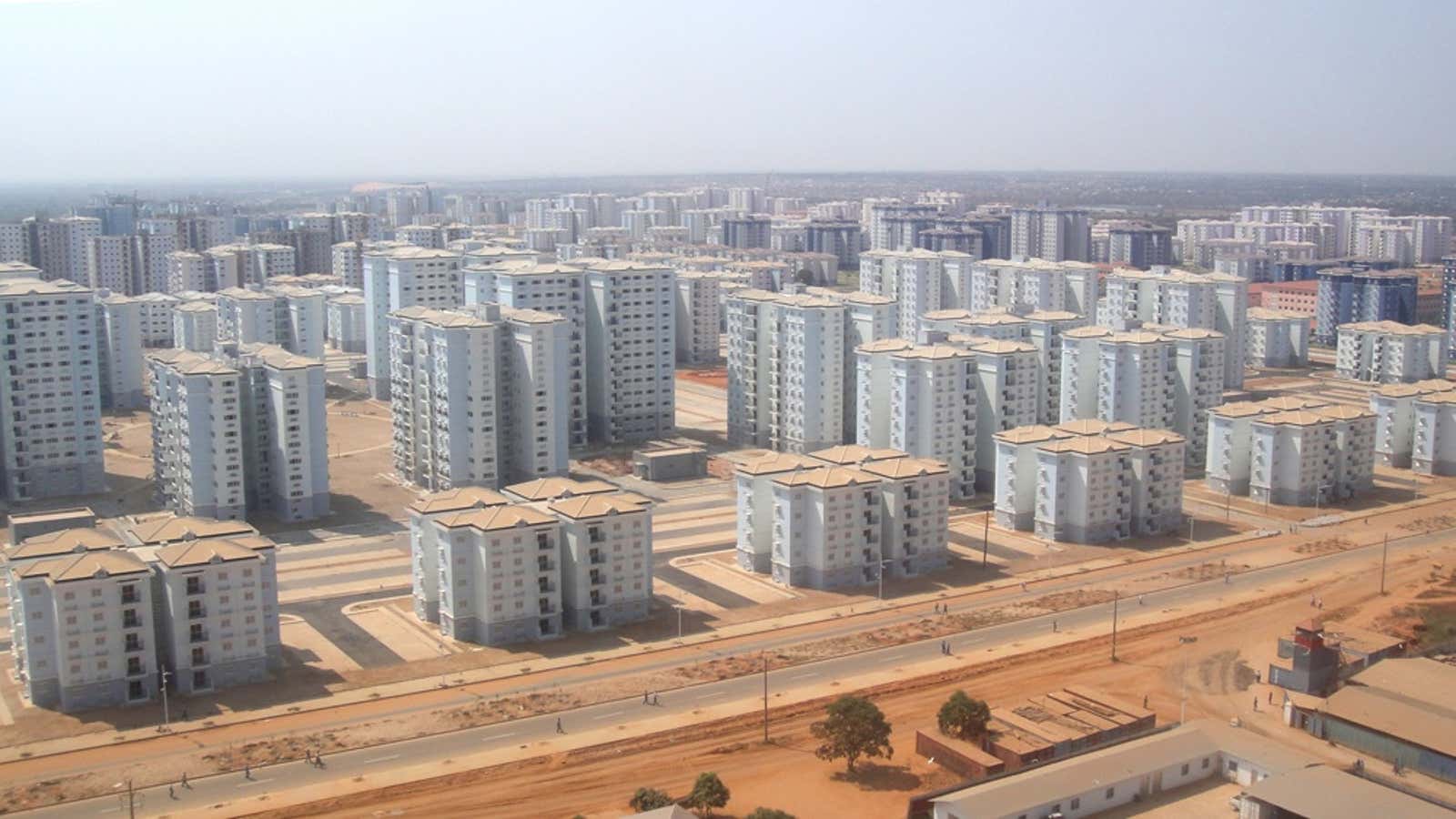You can receive this weekly brief, and more from Quartz Africa, by signing up for free here
Five stories from this week
Photos: These African cities are starting to look a lot like Chinese ones. China isn’t just providing funds and manpower to drive rapidly urbanizing African cities, writes Lily Kuo. The Asian giant is exporting its own version of urbanization to the continent, creating cities and economic zones remarkably similar to Chinese urban areas.
Play around with this simple, interactive tool to see the real size of India, China, and Africa. A new interactive map helps users easily compare the true size of nations and continents unlike a traditional Mercator map, writes Omar Mohammed. It’s particularly informative about the size of world powers like the US and Europe versus the actual size of Africa.
A new “drinkable book” has pages that turn raw sewage into drinking water.Researchers at Carnegie Mellon in Pittsburgh, have trialed a book in several African countries whose pages can be used to filter water. The pages contain tiny particles of copper and silver, which eliminate over 99% of bacteria, according to results of the project.
Google is bringing smartphones for under $100 to Africa—but it might be too late because China got here first. The search giant launched its Android One phone in Nigeria this week with the hope of winning sales across the continent. But it will have to contend with a range of even cheaper Chinese-made phones that have already taken significant market share.
South Africa’s Shoprite supermarket chain has the edge on Walmart’s Nigeria plans. Shoprite—Africa’s largest retailer by sales—plans to open 14 more stores in Nigeria within the next 20 months, in addition to the12 it already has in the country. It means the world’s No.1 retailer Walmart will face tougher competition than it might have expected when it opens in Nigeria, explains Sibusiso Tshabalala.
Chart of the week
As smartphone sales accelerate, Africa’s media giant Naspers wants a piece of the continent’s growing mobile content business The South African company is partnering with Vodacom and plans to distribute video from Naspers’ pay-TV platform, MultiChoice, on smart mobile devices.
Other things we liked
Reporting on Africa: Why China reports on Africa differently than the West. James Wan of African Arguments, writes on how China’s increasing ”soft-power” in Africa has been aided by its growing media presence. Wan argues Chinese reporting on Africa is “more constructive”—focusing on developmental issues, while Western reporting on Africa is seen to be “more combative”—highlighting recalcitrant leaders and regimes.
The Mobutu and Gadaffi effect: Why do some leaders refuse to leave office? Elizabeth Ohene, a Ghanaian writer and former government minister, argues most African countries have legislated term limits, but these are often amended in support of leaders who want to justify their longevity in office—often amassing wealth while doing so.
Small African countries are more effective with their spending. Writing in the Mail and Guardian Africa, Christine Mungai uses data from the World Economic Forum’s Africa Competitiveness Rankings to demonstrate the correlation between a country’s gross national income and wasteful government spending. Large and rich African countries are more wasteful, while small countries seem to be more prudent with their spending.
This week, keep an eye on
Gabon hosts the 14th US-Sub-Saharan Africa Trade and Economic Cooperation Forum (Aug. 24-27) in Libreville. The summit will focus on the challenges of advancing African trade, as well as focus on the opportunities presented by the renewal of the African Growth and Opportunity Act (AGOA)—a preferential trade agreement between the United States and 39 African countries.
South African deputy-president, Cyril Ramaphosa, will meet with the Prime Minister of Japan, Shinzo Abo, and former Japanese Primer Minister Yoshiro Mori on Aug. 24. Ramaphosa—a likely contender for South Africa’s presidency in 2019—is following on from a state visit to China last month.
